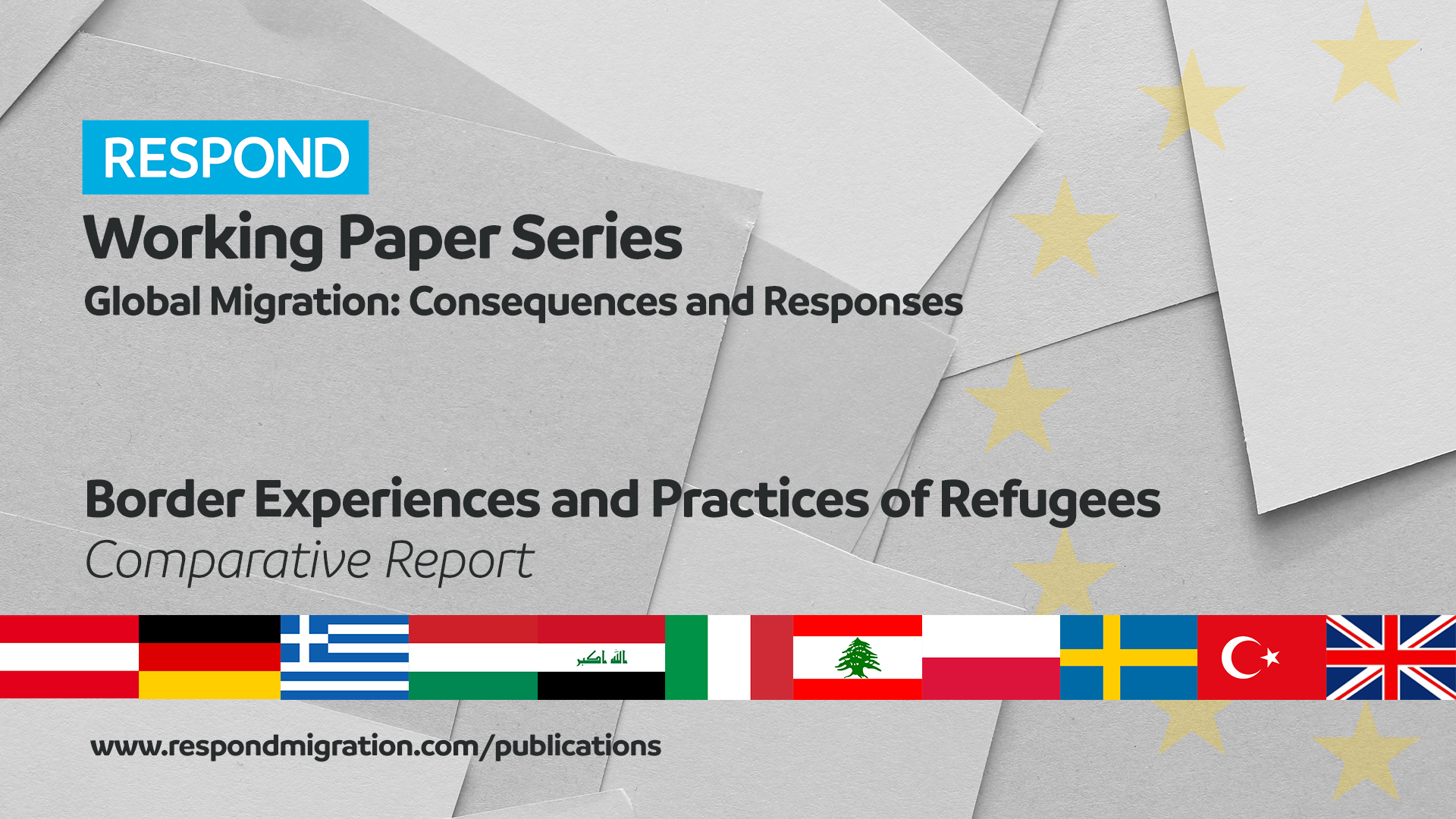Border Experiences and Practices of Refugees - Comparative Report
Sabine Hess - Göttingen University | Vasileios Petrogiannis - Uppsala University
This report analyzes how refugees are impacted by border-management policies and migration controls, and how they experience these policies and respond to them. It is based on 507 interviews with refugee migrants who made their way to Lebanon, Turkey, as well as a number of European countries between 2013 and 2018, being conducted by the eleven national Respond Teams. The empirical data not only allows us to reconstruct the effects of the existing border regimes on the lives of those who are their main object and target; we also outline how this analytical perspective on the practices and experiences of refugee migrants also enriches our understanding of what a “border” is today, and how it has been practiced by the respective nation-states in recent years. The interview material especially allows us to reconstruct the events of the years 2015 and 2016, which have been commonly referred to in the public discourse and by politicians and academia alike as the “European refugee crisis.” Thereby we will show that for most of the refugee migrants who made their journeys in these very months of 2015 and 2016 it was anything but a crisis, notwithstanding all the fears and hardships they were still regularly confronted with. Rather, the analyses—based on the comparison of experiences on the Balkan route with those on the Central Mediterranean one—clearly demonstrate that life-threatening risks and human rights violations directly correlate with border-control policies that aim to control the movements of migration and flight by sealing off the border.
Please find the entire report by clicking on one of the links below:

